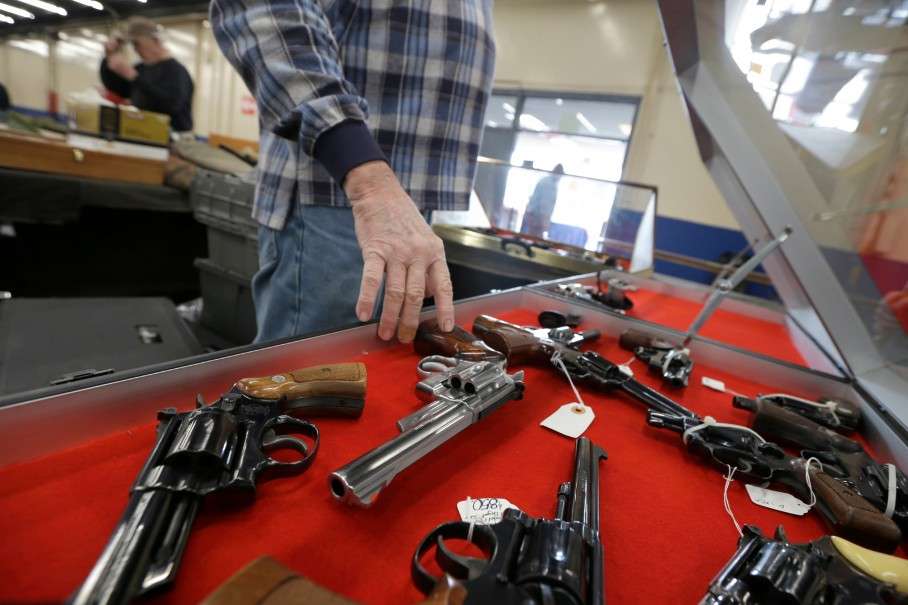The Volokh Conspiracy
Mostly law professors | Sometimes contrarian | Often libertarian | Always independent
Family court to father: No guns in the house until child is 18

But last week's In re Parentage of M.A.R.R. (Ill. Ct. App. Mar. 11, 2015) reversed the order. Here's a quick summary:
1. Andrea and Kurt were never married, but they have a now-2-year-old daughter, M.A.R.R. After the parents split up, the trial court eventually gave custody of M.A.R.R. to Kurt.
2. But Kurt had a gun collection - four pistols, one shotgun, and six rifles. "The guns are kept in a safe in his bedroom, and the door to his bedroom has a key pad access code on it. He keeps his bedroom door locked when the children are around."
With regard to Kurt's gun collection, in its letter opinion the trial court noted that Kurt, Andrea and both of Andrea's parents testified that guns were kept in a locked safe in a closet and behind a locked door to Kurt's bedroom. Although Andrea's father testified that he once saw a gun in the garage, the court found that he had no specific information about this incident and no one else corroborated it.
However, then the court found that it did "not wish to minimize the concern it has for the child's safety, and finds that it is not in the best interests of a child to have multiple guns and ammunition in a home." In the judgment order, the court ordered Kurt to remove all guns and ammunition from his home within 24 hours and ordered that guns were not permitted back into the home at any time until the child has attained the age of 18.
3. Kurt appealed, arguing, in relevant part, that the no-guns order was unjustified and violated the Second Amendment. Andrea appealed, arguing in part that one of the custody factors, "the mental and physical health of all individuals involved, favors her because while there was no expert testimony of Kurt's mental health, [his gun collection, among other things,] indicates that he has mental health issues and is a risk to M.A.R.R. We are not persuaded."
4. The court quickly rejected this argument of Andrea's, holding that "the fact that he legally collected guns has no bearing on his mental health status." And it accepted Kurt's argument that he shouldn't have been ordered not to possess guns. (Note that the order, in context, seemed to have been a condition of getting custody - if he chose to keep the guns, then presumably the trial court would have given custody to Andrea.)
Kurt's last argument is that the trial court erred when it ordered him to remove all guns and ammunition from his home within 24 hours and prohibited him from having guns brought back into his home until M.A.R.R. had attained the age of 18. In support of his contention, he claims: (1) there is no evidence in the record to justify this order; and (2) the order violates his Second Amendment right to bear arms.
We need not address Kurt's constitutional issue because, based upon the evidence presented at trial, we hold that the trial court erred by inserting this clause into the judgment order. See Mulay v. Mulay, 225 Ill. 2d 601, 607 (2007) (as a general rule, courts will address constitutional issues only as a last resort, relying whenever possible on nonconstitutional grounds to decide cases).
In its letter opinion, the trial court noted that extensive testimony was given regarding Kurt's collection of guns. It acknowledged that Kurt, Andrea, and both of Andrea's parents testified that the guns were kept in a locked safe in a closet located behind a locked door to Kurt's bedroom. Although the court noted that Andrea's father testified that he thought he once saw a gun in the garage, it also said that the father had no specific information about the gun, and that no one else at trial corroborated that incident. Nevertheless, the court went on to find that it was not in the child's best interests to have multiple guns and ammunition in a home.
Based upon the evidence presented at trial, as well as the trial court's own specific findings, it was not reasonable for the court to place such a restriction on Kurt's lawful possession of ammunition or guns without any evidence of danger to the child. Accordingly, we reverse the trial court's ruling on this issue …


Show Comments (0)